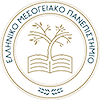Welcome to the 9th Erasmus International Week the Department of Electronic Engineering in collaboration with the International Relations Office and the ATHENA European University organize from the 26th to the 30th of September 2022 in Chania, Crete, Greece.
The topic the 9th Erasmus International week will deal with is the Soft and Digital Skills linked with the Internationalization of Higher Education. In parallel to the International week, two International Conferences will take place. For those that are interested in Electronic Engineering the 3rd International Conference in Electronic Engineering, Information Technology & Education will be hosted by the Department of Electronic Engineering. For more information, please check here: https://eeite2022.hmu.gr . For those keener on Agile methods in Higher Education, the 1st Europe Agile in Higher Education Conference (https://aieusa.bohnishikha.com/1st-agile-in-education-europeaieeu-conference) will take place. Both conferences will take place in parallel on the 4th and 5th day of the International week.
Why Soft Skills?
• Lets stop calling them soft skills. They are real skills. And they are learnable.
• Soft skills get little respect, but will make or break your career.
• Soft skills have more to do with who we are than what we know.
Reports from the market have shown that the mix of individual (our graduate students) hard and soft skills has been proven to dictate their success. Employers are interested in both sets of skills. Hard and Soft skills are not competitors but work in tandem. Higher education has started to realize its importance and new modules and programs start to appear. Soft skills are those that will prolong your survival and development in very competitive environments.
Why Digital Skills?
-
“The digital world creates a situation where there are no secrets anymore.” ~ Angela Merkel
-
“We are analog beings living in a digital world, facing a quantum future.” ~ Neil Turok
Digital skills are crucial for businesses across industries, for universities that want to raise brand awareness, be more inclusive, offer great social customer service, generate leads, and increase revenue. In Particular HE, digital skills enable learners to be more digitally mobile and access important information and services, transact online and explore technologies that will improve their social interactions with family and friends.
Why Internationalization of Higher Education?
Educational internationalization is the ability for teaching and learning to be increasingly involved with international cultures in order to enhance globalized learning. Jonas Stier refers to three ideologies of internationalization within higher education: idealism, instrumentalism, and educationalism.
During International Week academic and non-academic activities are planned to address the targeted themes of the week. More specifically, the program includes:
-
Lectures and Workshops on the targeted topics: soft skills, digital skills, agile pedagogies & technologies.
-
Discussions around good Internationalization policies and opportunities to collaborate.
-
Multiplier events: presentation of programs.
-
Cultural events: City tour, talks about the history of Crete, and farewell dinner.
This International Week is the last our emeritus Professor Ioannis Kaliakatsos organizes and we will be extremely honored with your presence (face to face but also online) during our International Week. Thank you, Ioannis.
The registration to all events (and the reconfirmation of your participation) should happen through this link: https://forms.gle/vjn7PMFBKEQ3LWtS6
The programm (pdf)

